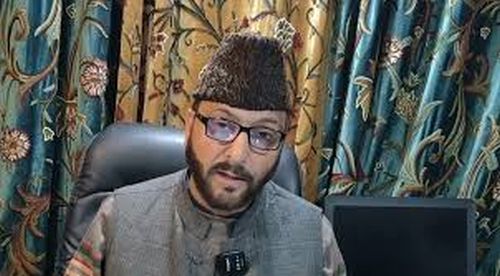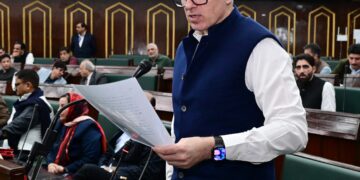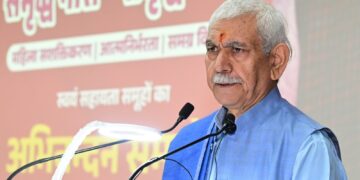Srinagar: The High Court of J&K and Ladakh has directed the Union Territory administration to constitute a high-level committee to identify and consider regularisation, within two months, of candidates engaged against clear vacant posts as Assistant Professors (APs), Librarians and PTIs before 2010.
Justices Sanjeev Kumar and Sanjay Parihar disposing of a string of petitions by the lecturers engaged (temporarily but consistently) in the Higher Education Department directed the respondent administration to “constitute a high-level committee headed by the Chief Secretary, with the Secretary to Government, Department of Higher Education; the Secretary to Government, General Administration Department; the Secretary to Government, Finance Department; and the Secretary to Government, Department of Law, as its members, within a period of one month”.
The Committee has also been directed to embark upon, within two months, an exercise “to identify those candidates who were appointed as Assistant Professors/Librarians/PTIs in colleges prior to the commencement of the Jammu and Kashmir Civil Services (Special Provisions) Act, 2010, against clear vacant posts; who were in position on the said date; and who have rendered continuous service for a period of seven years or more.”
The court “directed that candidates who are found by the Committee to have been appointed against vacant posts prior to the commencement of the Act of 2010, and who satisfy the eligibility criteria, shall be considered for regularization under the Act of 2010 within one month thereafter”.
It called for regularization of those found entitled under the Act be given retrospective effect from the date they are found eligible for such regularization.
It means those who completed continuous service of seven years on or before the commencement of the Act of 2010 shall be regularized from the date of commencement of the Act, while those who completed seven years of service after the commencement of the Act shall be regularized from the date on which they actually completed seven years of continuous service.
The court put a bar on fresh academic arrangements saying no such exercise shall be made by the Government against clear vacancies of Assistant Professors, Librarians, and PTIs borne on the Jammu and Kashmir Education Gazetted Colleges Service Recruitment Rules 2008.
It directed “efforts shall be made to immediately refer all such vacant posts to the Jammu and Kashmir Public Service Commission for selection”.
The court also directed the Committee to “examine the desirability of creating additional posts of teaching faculty, librarians, and PTIs in various degree colleges to meet the current and future demand of admissions and shall take requisite steps for creation of such additional posts, to be filled up only under the Jammu and Kashmir Education Gazetted Colleges Service Recruitment Rules 2008 Jammu and Kashmir Rules through a selection process conducted by the Public Service Commission”.
It impressed upon the authorities that all the academic arrangements made de hors the vacancies or outside the sanctioned strength of Assistant Professors, Librarians, and PTIs shall be dispensed with from the next academic session.
It, however, allowed the process to be continued with unless such engagements are required to meet the exigency of the situation obtaining in the next academic year and thereafter.
“Any such engagements, if made, shall be treated as fresh engagements, purely contractual in nature, and shall not confer any right of regularization under any law in force or that may be framed by the government in future,” directed the court.
The court explained that its today’s directions shall not be applicable to Teaching Associates engaged on contractual basis and their engagements shall be governed by the terms and conditions of their appointments.
The candidates were aggrieved by a 2023 judgment by the Central Administrative Tribunal (CAT), Srinagar Bench, in TA No. 297/2021.
On the apprehension that they may be replaced by similar arrangements as also for seeking their regularization under the Act of 2010, the petitioners sought “Section 3(b) of the Act of 2010, to the extent it excludes the persons appointed on academic arrangement from the applicability of the Act, be declared ultra vires the Constitution, and that Section 10 (2) and Section 10(2A) of the Act be also struck down.”
They sought regularization of their services in terms of the Act of 2010; and commanding upon the respondents not to replace the petitioners by engaging other candidates on academic arrangement basis.
The Tribunal, it may be noted, had in 2023 concluded that the persons appointed on ad hoc, contractual and consolidated basis against clear vacancies, and those appointed purely on academic arrangement basis for a fixed term, form two distinct classes.
It had said such classification has a rational nexus with the object sought to be achieved by the Act of 2010, namely, to provide regularization to ad hoc, contractual and consolidated employees working against clear vacancies for a period of seven years and more.
The CAT judgment was challenged with the argument that “it has failed to appreciate that though the engagement of the petitioners was designated as ‘contractual’ on academic arrangement basis, but, in essence, it was an engagement on ad hoc basis and, therefore, the respondents could not have discriminated against them vis-à-vis those who were similarly appointed, and described as contractual, ad hoc or consolidated”.
They said the Tribunal has failed to appreciate that the petitioners were similarly situated with those engaged on ad hoc, contractual and consolidated basis, and, therefore, formed a single class.
The division bench held that the Act of 2010, which aims at regularizing the services of temporary employees appointed on ad hoc, contractual, or consolidated basis, strikes at the root of Articles 14 and 16 of the Constitution and is, on the face of it, unconstitutional.







